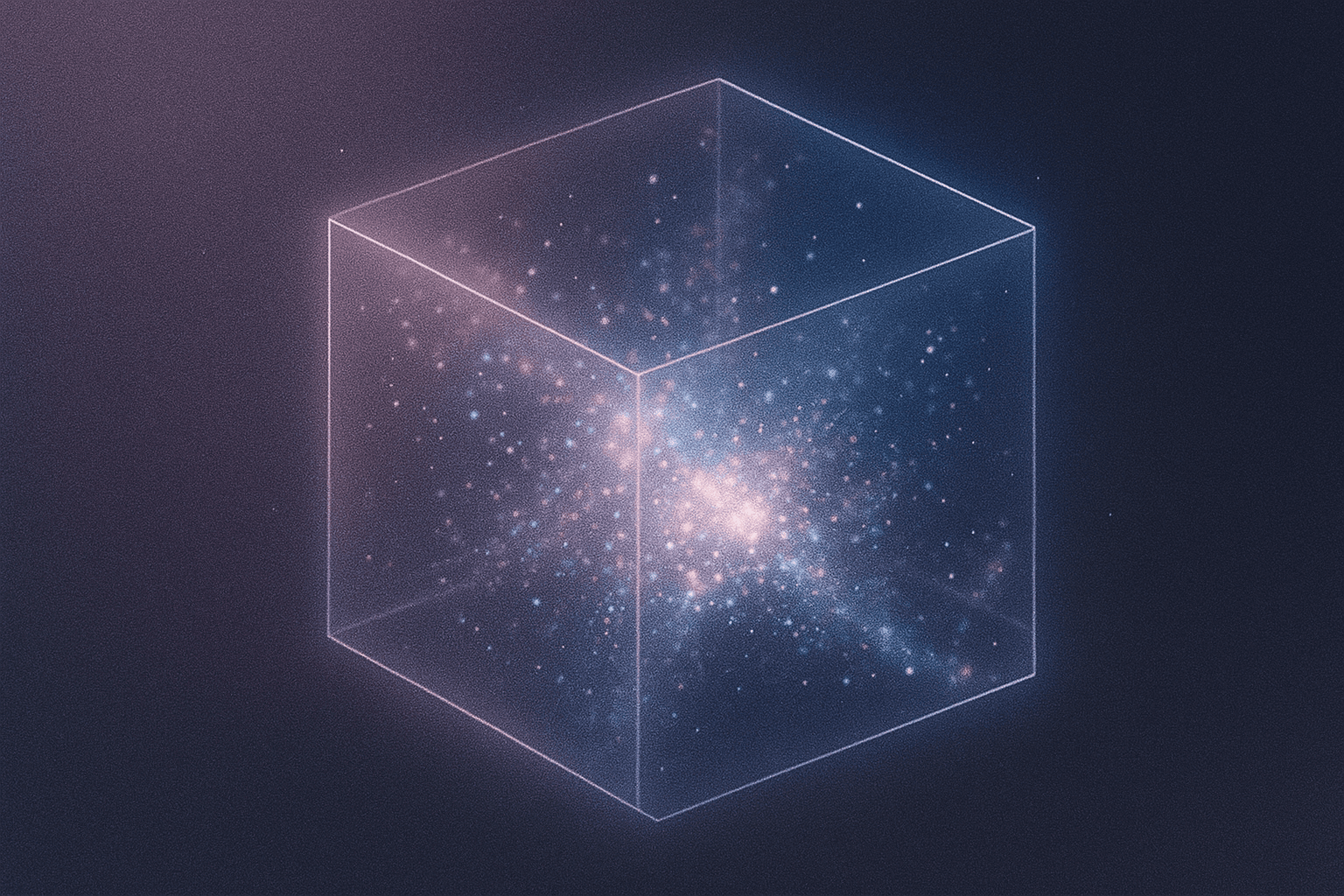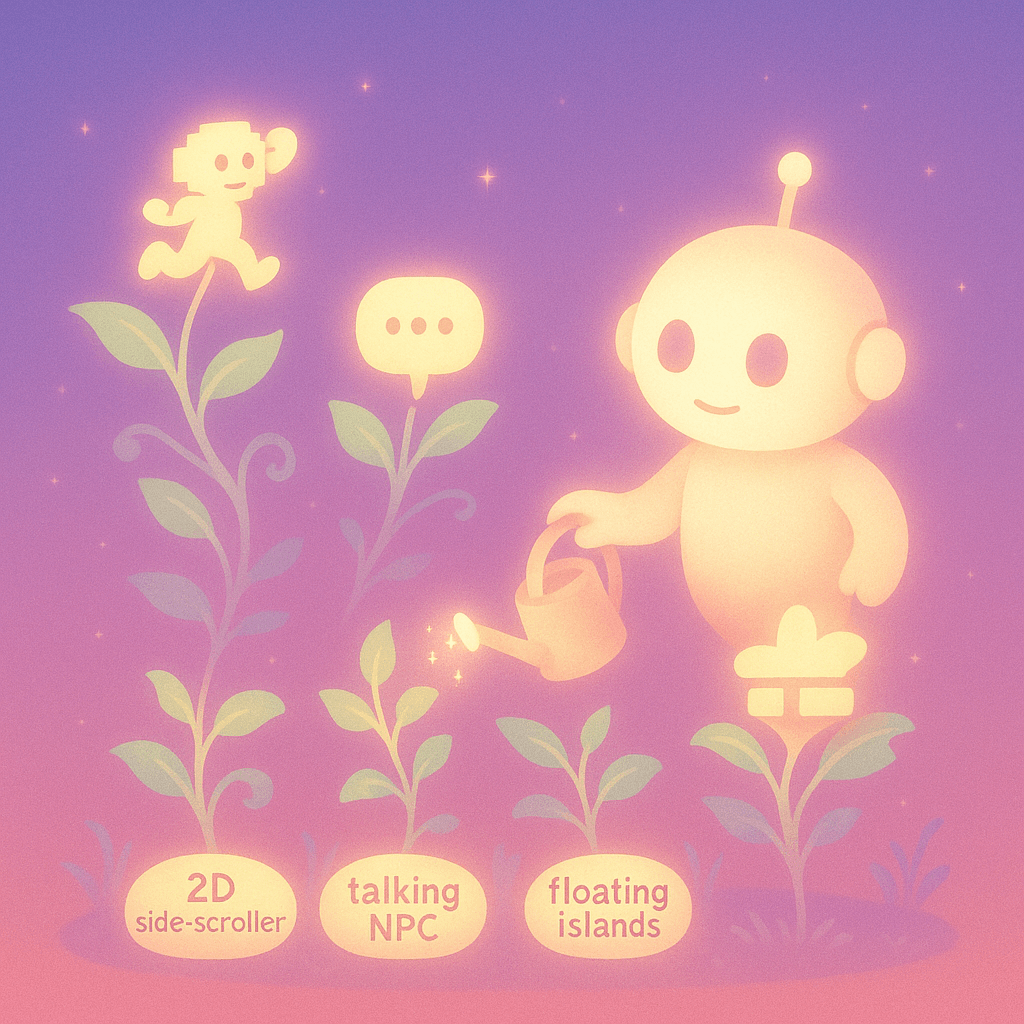
AI can already generate simple, playable games and automate large parts of the development process but it’s not yet ready to build polished, AAA-level titles on its own.
Still, the technology is advancing fast, unlocking new levels of automation, accessibility, and creative freedom for both seasoned developers and first-time creators.
How AI Creates Video Games Today
AI game development leverages several key technologies that work together to streamline the creation process:
Generative AI and Procedural Content Generation
Modern AI systems can create game elements from simple prompts:
Procedurally generated worlds: AI enhances traditional procedural generation by learning from gameplay videos or sketches to create coherent levels. Google's Genie 2 constructs 3D worlds from a single image, allowing players to interact with dynamically generated objects and physics.
Asset creation: Tools like Scenario and PrometheanAI generate 2D/3D models, textures, and animations from text prompts, dramatically reducing the need for manual design.

Natural Language Processing (NLP)
NLP allows developers to describe game mechanics or narratives in plain language:
Ludo.ai exemplifies this by generating Unity scripts and tutorials from user prompts.
Rosebud AI converts text descriptions into playable browser-based games with no coding required.
Automation and Adaptive Systems
AI handles repetitive tasks across the development pipeline:
Playtesting: modl.ai uses AI bots to simulate thousands of gameplay sessions, identifying bugs and balancing issues faster than human testers.
Dynamic storytelling: Platforms like Charisma.ai enable NPCs with emotionally responsive dialogue that adapts to player choices in real time.
Code generation: Plugins such as UnityGen AI and GitHub Copilot suggest or write code snippets, accelerating development cycles.
Applications in Game Development
Rapid Prototyping
AI tools reduce prototyping time from months to hours. Ludo.ai's Playable Generator assembles interactive demos from vague descriptions like "a platformer with a retro vibe," while Google Genie takes this further by generating 2D games from sketches, learning physics and interactions from video data.
Asset and Content Generation
3D models: AI creates style-consistent assets from character models to textures.
Voice acting: Tools like Replica Studios generate royalty-free voice lines for NPCs with adjustable pitch and emotion.
Concept art: Ludo.ai's Image Generator produces concept art and icons from text prompts.
Enhanced Player Experiences
AI enables games that adapt to individual players:
Procedural narratives: Systems craft branching storylines based on player decisions.
Dynamic difficulty: Machine learning models analyze player behavior to adjust challenges in real time, as seen in games like Resident Evil Village.

Benefits and Limitations
Benefits
Speed: Tasks like asset creation and playtesting are reduced from weeks to hours.
Cost efficiency: Smaller teams can achieve AAA-quality output using AI-generated assets and code.
Accessibility: Non-programmers can create games through natural language interfaces.
Innovation: AI suggests novel mechanics or art styles, inspiring human designers.
Limitations
Creative depth: AI struggles with cohesive, emotionally resonant narratives or deeply balanced gameplay.
Technical constraints: Generated code often requires refinement, and complex physics systems remain challenging.
The Future of AI-Generated Games
The trajectory points toward "living games," titles that evolve based on player interactions. Google's vision of gen AI enabling real-time content adaptation is already materializing in tools like Genie 2. However, human oversight remains critical for quality control and creative direction.
As Unity AI integrates generative tools directly into its engine, the line between developer and AI collaborator continues to blur.
Conclusion
AI is undeniably reshaping game development, democratizing access and accelerating production. While it cannot yet replace human creativity, tools like Ludo.ai, Google Genie, and Charisma.ai demonstrate that AI-generated prototypes, assets, and narratives are viable and increasingly sophisticated.
The future lies in hybrid workflows, where AI handles repetitive tasks, and developers focus on innovation and polish. As the technology matures, the dream of creating a game through a single prompt inches closer to reality, but for now, AI remains a powerful ally rather than a standalone creator.
Want to try this yourself?
Here's a fully built AI workflow for exploring video game creation with AI ready to go, no setup needed.
Try a free AI video game creator here.
Build your own game development workflows and automate repetitive tasks across your creative process, all without writing a single line of code.